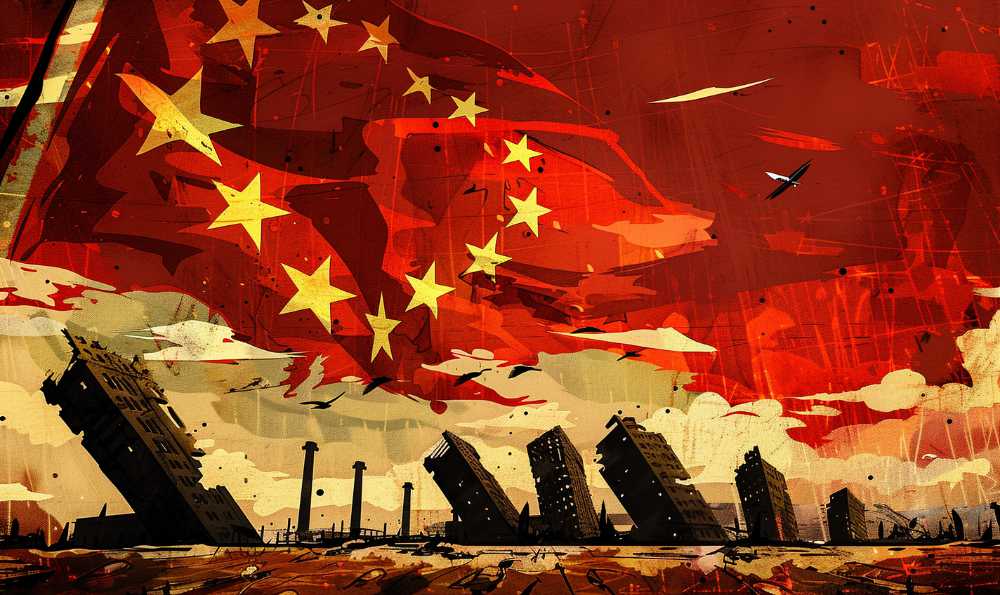The European Union: A Shift Towards Totalitarianism?

A Growing Concentration of Power Without Democratic Oversight
The European Union (EU) was once presented as a peaceful cooperative project, but it has evolved into an opaque, bureaucratic superstate that increasingly leans toward a totalitarian system. While citizens struggle with rising costs, economic uncertainty, and growing regulation, EU officials enjoy privileged status, including tax benefits and exemptions that are unthinkable for ordinary citizens. This raises the question: is the EU truly a democratic project, or is it an elite system designed to keep the masses under control?
Bureaucratic Power and the Influence of Unelected Technocrats
EU institutions such as the European Commission, the European Parliament, and the European Council have, over the decades, amassed unprecedented power. The legislation coming from Brussels affects every aspect of daily life, while the average citizen has little to no influence over it. The European Commission, which initiates most legislative proposals, consists of unelected officials who cannot be directly voted out by the people. This creates a power structure in which citizens bear the consequences of policies but have little say in their formulation.
Meanwhile, lobbying groups and multinational corporations have a strong voice in EU policymaking. Research shows that major companies such as Google, Pfizer, and BlackRock are deeply entangled in Brussels’ decision-making processes (Corporate Europe Observatory, “Lobbying in the EU,” 2023). This concentration of power in the hands of an unelected elite is reminiscent of communist systems, where the government and large corporations collaborate to benefit a small group at the expense of the majority.
Loss of National Sovereignty: A Deliberate Process
The EU was initially presented as a voluntary cooperation between sovereign states, but in reality, national governments are being steadily eroded. Decisions on the economy, immigration, defense, and even health policy are increasingly transferred to EU institutions, often without the approval of national parliaments or citizens. The introduction of the euro has economically shackled member states, forcing weaker economies into dependency on financial transfers and debt mechanisms maintained by central EU banks and financial institutions.
Countries such as the Netherlands and Germany contribute billions to EU funds, while their citizens face increasing financial burdens. Meanwhile, economically weaker countries benefit from these funds without significant obligations in return. This creates a system in which hardworking citizens pay the bill for an ever-centralizing European power bloc (CPB, “EU Finances and the Netherlands,” 2023).
Additionally, national legislation is often subordinated to EU directives, leaving countries with little room to implement independent policies. This mirrors the way the Soviet Union controlled and restricted the autonomy of its satellite states (Snyder, The Road to Unfreedom, 2018).
A Democratic Deficit: For the Elite, Not for the People
While the EU portrays itself as a democratic project, the reality is quite different. The European Parliament, which supposedly represents citizens, has limited power and cannot even propose new laws. Real authority lies with the European Commission and the European Council, both of which lack direct democratic accountability. Citizens have minimal influence over EU legislation, while powerful lobbying groups and multinational corporations shape policy.
This lack of democratic legitimacy and transparency has widened the gap between citizens and EU institutions. Studies show that the majority of European citizens feel unrepresented by the EU and have little trust in its institutions (Transparency International, “EU Accountability Report,” 2023). This reflects a system in which elites dictate policy without considering the interests of the average citizen.
Restrictions on Freedom of Expression and Citizen Control
Beyond economic and political control, the EU is also expanding its grip on digital and personal freedoms. Under the guise of “combating misinformation” and ensuring “online safety,” extensive measures are being implemented to regulate information. The Copyright Directive and the Digital Services Act impose obligations on tech companies to censor and filter content, effectively suppressing dissenting opinions (Euractiv, “EU Digital Regulation and Freedoms,” 2023).
Furthermore, there are concerning developments regarding digital IDs and central bank digital currencies (CBDCs), which could be used to control citizens financially and socially. Such policies resemble China’s social credit system, where undesirable behavior can be punished with financial restrictions (Kissinger, The Age of AI, 2022).
A Communist Model in a New Form?
When examined critically, the EU’s power structures and economic models closely resemble those of communist regimes. The following elements stand out:
- Central Economic Control: The EU dictates economic guidelines and enforces compliance through sanctions and financial control.
- Privileged Elite: High-ranking EU officials and bureaucrats enjoy financial benefits and immunity, while citizens face rising costs and inflation.
- Propaganda and Censorship: Criticism of the EU is increasingly labeled as “disinformation” and censored through legislation and collaboration with major media corporations.
- Collectivization of Debt and Resources: The net contributors in the EU finance countries that structurally benefit without a clear balance of contributions and responsibilities.
These systemic problems demonstrate that the EU is moving further away from its original goals and evolving into a centralized, technocratic system where citizens have little to no control over their own future.
Conclusion: The EU as a Mechanism of Control
While the EU presents itself as an institution promoting peace and prosperity, the reality is far grimmer. In practice, the Union functions as a bureaucratic machine that steadily consolidates power at the expense of democratic principles and national sovereignty. Authority is concentrated in the hands of a small elite with minimal accountability, while citizens are subjected to economic exploitation, censorship, and increasing regulation.
References
- Corporate Europe Observatory, Lobbying in the EU, 2023.
- CPB, EU Finances and the Netherlands, 2023.
- Transparency International, EU Accountability Report, 2023.
- Euractiv, EU Digital Regulation and Freedoms, 2023.
- Snyder, The Road to Unfreedom, 2018.
- Kissinger, The Age of AI, 2022.


















